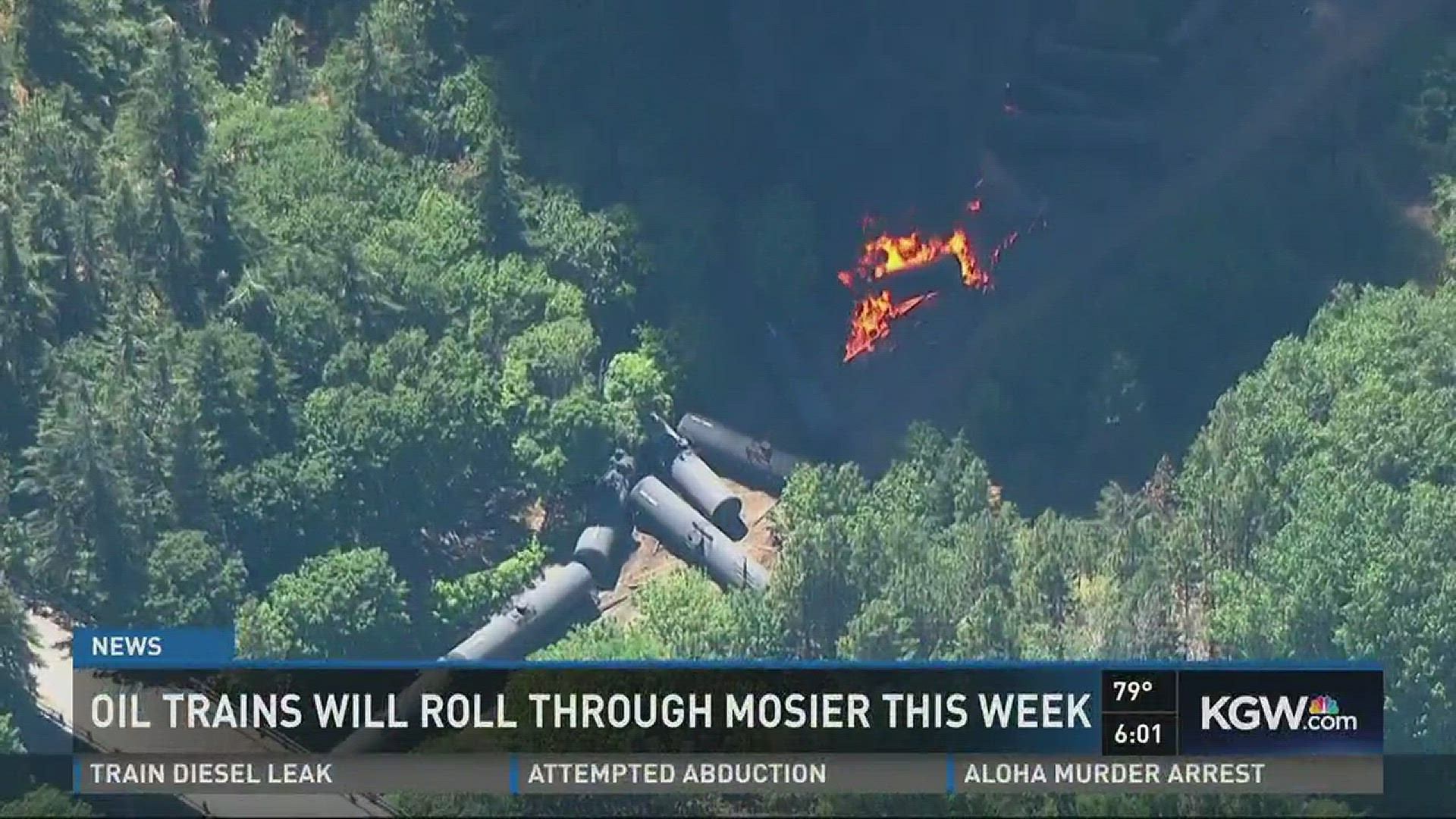PORTLAND, Ore. -- Union Pacific plans to resume transporting oil by train through the Oregon side of the scenic Columbia River Gorge at some point this week.
Spokesman Justin Jacobs would not give a specific date for security reasons.
It will mark the first time trains carrying barrels of crude oil will move through the area since June 3, when a train derailed near Mosier. The fiery derailment caused 42,000 gallons of oil to spill.
The company's latest plans, announced Wednesday, stand at odds with several government and private-sector leaders in Oregon and Washington, who say oil-by-train is too dangerous and are urging their governors, Congress and the White House to push for a moratorium on the practice.
Union Pacific defended its decision, saying its oil train operations are a federal obligation.
"I don’t know that we’ll ever completely meet all the community concerns," Jacobs told KGW. He said safety and community relations are very important to Union Pacific.
After the derailment, Union Pacific has increased its frequency of inspections and enhanced derailment prevention inspections, Jacobs said.
Hal Gard, a rail and public transit administrator for the Oregon Department of Transportation says the changes should ease the minds of the public.
"They've revamped their inspection techniques. Folks are on the ground, they're actually turning bolts where they exist," Gard said. "There's a very strong, I don't want to say comfort level but a much higher level of assurance that we've got the safest track that we can have out there."
In a statement to KGW, the Federal Railroad Administration said its investigation of the derailment is ongoing.
Mosier's mayor said she can't believe trains will begin going through the Gorge again when the investigation hasn't been finished.
"We're pretty devastated here in Mosier that the trains are going business as usual with normal speed when the investigation still has not been completed," Mayor Arlene Burns said.
Burns also wants laws to be examined before more trains begin traveling by her town.
"We need to revisit the federal policies that are enabling our Columbia River Gorge to potentially become a superhighway for fossil fuels," she said.

